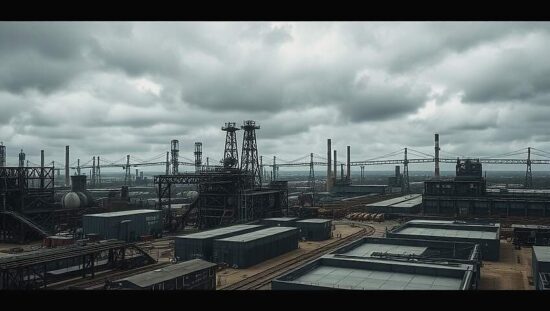The potash and salt giant K+S is issuing a stark warning to the German government, asserting that escalating rail transport costs threaten industrial jobs and potentially undermine the nation’s manufacturing competitiveness. Christian H. Meyer, CEO of K+S, voiced his concerns in an interview with “Tagesspiegel”, highlighting the precarious situation faced by industries reliant on rail freight.
The core of the issue revolves around the steadily increasing “trassenpreise” a rail usage fee levied on transporting goods. Already impacted by a 16.2% increase at the beginning of the year, another substantial rise is anticipated at the December 2025 timetable change. This is a direct consequence of the federal government’s decision to inject significant equity into DB Infrago, the DB subsidiary responsible for rail infrastructure maintenance, requiring the company to generate returns.
Meyer argues that the proposed increases are unacceptable for industry. K+S estimates the cumulative cost of the planned price hikes will reach double-digit millions of euros by 2030, placing a considerable strain on the company’s operations. He accuses the government of pursuing a flawed transport policy that risks jeopardizing industrial jobs.
The situation raises critical questions about the government’s prioritization of rail infrastructure upgrades versus the broader economic implications for industries heavily dependent on affordable freight transport. While investment in rail maintenance is undoubtedly necessary, critics argue that the burden is being unfairly distributed, disproportionately impacting manufacturing industries at a time when Germany is striving to maintain its industrial base amidst global economic headwinds.
Meyer’s call for government compensation through increased subsidies for freight rail operators underscores the political pressure being exerted. The debate now centers on whether the government will heed the warning and adjust its policy, balancing the need for rail infrastructure investment with the imperative of protecting German industrial jobs and maintaining economic stability. Failure to do so, according to K+S, will have tangible and damaging consequences for the German economy.





